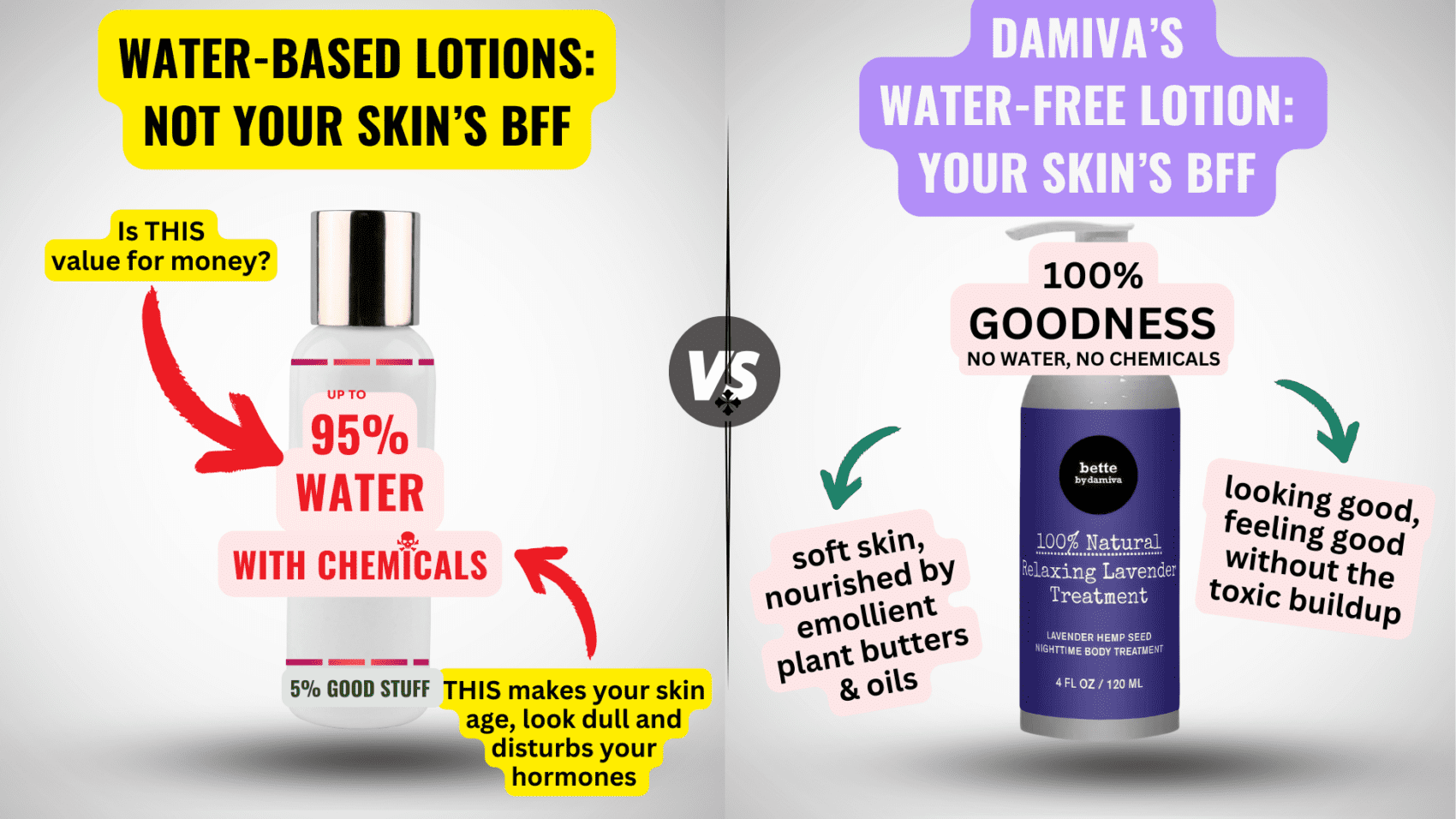Menopause and Gluten Sensitivity
Menopause marks the end of a woman’s reproductive years, typically occurring in the late 40s to early 50s. It is diagnosed after 12 consecutive months without a menstrual period. Menopause is accompanied by a range of symptoms, including hot flashes, night sweats, mood swings, and changes in sexual function. These symptoms are the result of biochemical changes in the body, particularly the decline in estrogen and progesterone production by the ovaries. This hormonal shift can affect various systems in the body, leading to the diverse array of menopausal symptoms.
The Role of Gluten in Hormonal Health
Gluten, a protein found in wheat, barley, and rye, has been implicated in hormonal health due to its potential to cause inflammation and immune system reactions in sensitive individuals. For some women, particularly those with gluten sensitivity or celiac disease, consuming gluten can lead to hormonal disruptions. These disruptions may exacerbate menopausal symptoms or potentially influence the timing of menopause. The relationship between gluten and hormones is complex and may involve the gut-brain axis, where gut health significantly impacts hormonal balance and overall well-being.
Overview of Gluten Sensitivity and Celiac Disease
Gluten sensitivity and celiac disease are two conditions that arise from an adverse reaction to gluten. Celiac disease is an autoimmune disorder where ingestion of gluten leads to damage in the small intestine, while gluten sensitivity (also known as non-celiac gluten sensitivity or NCGS) is characterized by symptoms similar to celiac disease but without the intestinal damage. Symptoms of gluten sensitivity can include bloating, abdominal pain, fatigue, and brain fog, which can overlap with menopausal symptoms, making diagnosis challenging. Both conditions can lead to nutrient malabsorption, which may have downstream effects on hormonal health and potentially contribute to early menopause.
Understanding the interplay between menopause and gluten sensitivity is crucial for women navigating this transition. As research continues to explore the potential link between gluten and early menopause, it is important for women to be aware of the signs of gluten sensitivity and to consider dietary adjustments that may support a smoother menopausal transition.
Linking Gluten and Early Menopause
Evidence of Gluten’s Impact on Menopausal Timing
Research has begun to shed light on the relationship between gluten consumption and the timing of menopause. Studies indicate that women with untreated celiac disease tend to experience menopause earlier than the average population. This premature onset of menopause can significantly reduce a woman’s fertile lifespan, sometimes by several years. For instance, women with celiac disease who do not adhere to a gluten-free diet have been reported to enter menopause as early as their mid-30s, well before the typical age range of 45 to 55. Conversely, those who maintain a strict gluten-free diet for an extended period, such as a decade or more, may prolong their fertile years and delay the onset of menopause.
Hormonal Disruption and Menopause Symptoms
The hormonal fluctuations that characterize menopause can lead to a variety of symptoms, from hot flashes to mood swings. Gluten’s role in exacerbating these symptoms is becoming increasingly evident. Gluten sensitivity can lead to hormonal imbalances due to the body’s immune response to gluten, which may affect the endocrine system. This disruption can intensify menopausal symptoms, making the transition more challenging for those with gluten sensitivity or celiac disease. Women with untreated celiac disease, in particular, report more severe hot flashes, muscle and joint problems, and irritability during perimenopause.
Nutrient Malabsorption and Menopausal Health
One of the critical issues in celiac disease is the malabsorption of nutrients caused by damage to the small intestine. This malnutrition can have far-reaching effects on a woman’s health, particularly as she approaches menopause. Hormone synthesis requires a range of vitamins and minerals, and deficiencies can lead to hormonal imbalances. Furthermore, early menopause is associated with an increased risk of osteoporosis, a condition also linked to celiac disease. The malabsorption of calcium and vitamin D, crucial for bone health, may contribute to both early menopause and the development of osteoporosis. Additionally, gluten can act as an endocrine disruptor, potentially affecting the synthesis and action of hormones such as estrogen and progesterone, which are vital for maintaining reproductive health.
In summary, the evidence suggests a clear link between gluten sensitivity, particularly in the form of celiac disease, and the early onset of menopause. The implications of this connection are significant, as they extend to both the severity of menopausal symptoms and the broader health risks associated with early menopause. Addressing gluten sensitivity and ensuring proper nutrient absorption are crucial steps in mitigating these risks and supporting women’s health during the menopausal transition.
Health Implications of Early Menopause
Reduced Fertility and Reproductive Lifespan
Early menopause, defined as the cessation of menstruation before the age of 45, can have profound effects on a woman’s fertility and overall reproductive lifespan. For women with celiac disease, particularly those undiagnosed or not adhering to a gluten-free diet, the onset of menopause can occur significantly earlier, sometimes even in their mid-30s. This premature cessation of reproductive function not only shortens the window of opportunity for conception but also impacts the length of the fertile lifespan due to a delayed onset of menstruation and an earlier menopause.
Studies have shown that women with untreated celiac disease have a shorter duration of fertile lifespan compared to those without the condition. This reduction in fertility can be a source of emotional distress for those who desire children. Conversely, adherence to a strict gluten-free diet has been associated with a longer fertile lifespan, highlighting the importance of diet management in women with gluten sensitivity or celiac disease.
Long-term Health Risks Associated with Early Menopause
The implications of early menopause extend beyond fertility. Women who experience menopause prematurely face an increased risk of several long-term health issues. One of the most significant concerns is osteoporosis, a condition characterized by weakened bones and an increased risk of fractures. The link between celiac disease and osteoporosis is well-documented, with nutrient malabsorption playing a critical role in bone density loss.
Additionally, early menopause is associated with an elevated risk of cardiovascular disease, which remains the leading cause of death in women. The protective effects of estrogen on heart health diminish with menopause, and an early loss of this hormone can lead to an increased risk of heart disease and stroke. Neurological issues, including an increased likelihood of dementia and mood disorders, are also more prevalent in women who undergo early menopause.
Furthermore, the psychological and psychosexual repercussions of early menopause should not be underestimated. Women may experience a decline in sexual function, emotional distress, and a decrease in quality of life. These factors underscore the importance of recognizing and addressing early menopause, particularly in women with gluten sensitivity or celiac disease, to mitigate these long-term health risks.
Thus, early menopause induced by gluten sensitivity or celiac disease can lead to a cascade of health challenges, from reduced fertility to increased risks of osteoporosis, cardiovascular disease, and neurological conditions. It is imperative for women with celiac disease to receive a timely diagnosis and adhere to a gluten-free diet to help prolong their fertile lifespan and reduce the risk of these associated health issues.

From unhappy, dry, and sandpaper to silky, smooth and feeling good. That’s Cleo. Cleo is a 100% natural labial balm to moisture and soothe “your other lips”. Cleo is chemical-free, water-free, pH optimized and helps maintain and restore your delicate labial skin’s natural flora. Ideal for daily use or as needed. Get the most silky, lovable lips ever.
Gluten’s Influence on Hormonal Balance
Nutritional Deficiencies and Hormone Synthesis
One of the major causes of hormone disruption in individuals with gluten sensitivity or celiac disease stems from nutritional deficiencies. Hormones require an array of vitamins and minerals for proper synthesis. Gluten can damage the small intestine, leading to impaired absorption of key nutrients necessary for hormone production. For example, vitamin D, B vitamins, iron, and magnesium are all crucial in the synthesis and regulation of hormones such as estrogen, progesterone, and testosterone. The malabsorption issues caused by gluten can therefore directly impact the body’s hormonal balance, contributing to symptoms such as menstrual irregularities, fertility issues, and early onset of menopause.
Endocrine Disruption by Gluten and Related Compounds
Gluten and related compounds can act as endocrine disruptors, interfering with hormone function. Studies suggest that gluten-induced autoimmunity can affect multiple endocrine organs, including the ovaries and thyroid gland. Furthermore, grains, which are a primary source of gluten, are often treated with herbicides like atrazine and glyphosate, known hormone disruptors. These substances can alter the synthesis or action of hormones, exacerbating conditions like early menopause and intensifying menopausal symptoms. The impact of these disruptors is significant, as they can contribute to a cascade of hormonal imbalances within the body.
Impact of Grain-Based Diets on Hormonal Health
Grain-based diets, particularly those high in gluten-containing grains like wheat, barley, and rye, can have a profound impact on hormonal health. These foods are often heavily processed and lack essential nutrients, leading to a higher risk of nutritional deficiencies among those who consume them regularly. Additionally, the inflammatory response triggered by gluten in sensitive individuals can lead to chronic inflammation, which is known to disrupt hormonal signaling pathways. This inflammation can contribute to a range of hormonal issues, including the potential for early menopause. By understanding the role that gluten and grain-based diets play in hormonal balance, individuals can make informed dietary choices to support their endocrine health.
In conclusion, the relationship between gluten and hormonal balance is multifaceted, involving nutrient absorption, endocrine disruption, and dietary patterns. For those with gluten sensitivity or celiac disease, careful management of diet and lifestyle factors is essential to maintain hormonal equilibrium and mitigate the risk of early menopause.
Natural Approaches to Managing Menopause Symptoms
Dietary Modifications: Gluten Avoidance and Nutritional Balance
As women transition through menopause, dietary adjustments can be a powerful tool for managing symptoms. For those with gluten sensitivity or celiac disease, gluten avoidance is crucial. Gluten can disrupt hormone balance and exacerbate menopausal symptoms, such as hot flashes and mood swings. A gluten-free diet may not only alleviate these symptoms but also improve nutrient absorption, which is often compromised in those with gluten-related disorders.
Alongside gluten avoidance, maintaining a nutritional balance is essential. Incorporating a variety of whole foods, such as fruits, vegetables, lean proteins, and healthy fats, ensures an adequate intake of vitamins and minerals necessary for hormonal health. Foods rich in calcium, vitamin D, and vitamin K are particularly important for bone health, as menopause increases the risk of osteoporosis.
Lifestyle Factors: Weight Management, Exercise, and Stress Reduction
- Weight Management: Achieving and maintaining a healthy weight can mitigate menopausal symptoms and reduce the risk of chronic diseases associated with menopause.
- Exercise: Regular physical activity, including both aerobic and resistance exercises, can improve sleep quality, mood, and overall well-being. It also plays a role in weight management and bone density preservation.
- Stress Reduction: Chronic stress can worsen menopausal symptoms. Techniques such as mindfulness, yoga, and deep breathing can help manage stress levels.
The Role of Sleep and Omega-3 Fatty Acids
Quality sleep is vital for hormonal balance and symptom management during menopause. Sleep disturbances are common during this time, and dietary choices can influence sleep quality. For instance, consuming foods high in tryptophan, such as dairy products, can aid in improving sleep patterns.
Omega-3 fatty acids, found in fatty fish, flaxseeds, and walnuts, are also beneficial. They have been associated with a reduced risk of cardiovascular disease and may help delay the onset of menopause. Omega-3s can also have a positive impact on mood and cognitive function, which can be affected during menopause.
In conclusion, a holistic approach that includes dietary modifications, lifestyle changes, and the incorporation of specific nutrients can support women in managing menopause symptoms naturally. By focusing on these areas, women can improve their quality of life during this significant life transition.

THEN IT CONTAINS TOXIC CHEMICALS. WHY RISK IT GETTING SICK? GO CHEMICAL FREE.
Supplemental Support for Menopause
Herbal and Nutritional Supplements for Symptom Management
During menopause, many women seek natural remedies to manage symptoms such as hot flashes, mood swings, and sleep disturbances. Herbal and nutritional supplements have become popular options, with some showing promise in scientific studies. For instance, soy isoflavones are naturally occurring compounds that may help reduce the frequency and severity of hot flashes. Supplements like One a Day Women’s Menopause Multivitamin and Theralogix IsoRel contain these isoflavones and have been third-party tested for quality assurance.
Another supplement, black cohosh, has been traditionally used for menopause symptoms, although its efficacy is still debated. Magnesium, particularly in the form of magnesium glycinate, has been associated with improved sleep quality and is found in products like Pure Encapsulations Magnesium Glycinate. For bone health, a combination of vitamin D3 and K2 can be beneficial, as seen in NOW Vitamin D3 + K2, which supports calcium absorption and bone density.
It’s important to note that while some supplements may offer relief, they should not replace a balanced diet and healthy lifestyle. Always consult with a healthcare provider before starting any new supplement regimen, especially if you have a history of hormone-sensitive conditions or are taking other medications.
Identifying Nutrient Deficiencies in Menopausal Women
Nutrient deficiencies can exacerbate menopausal symptoms and negatively impact overall health. Menopausal women are at increased risk for deficiencies in vitamin D, calcium, magnesium, and omega-3 fatty acids. A healthcare provider can help identify these deficiencies through blood tests and recommend appropriate supplementation.
For example, vitamin D is crucial for bone health and may be lacking, especially in women with limited sun exposure. Calcium needs also increase during menopause, and while it’s best obtained through diet, supplements may be necessary for some. Magnesium is important for bone health and sleep, and omega-3 fatty acids support cardiovascular health and may help with mood stabilization.
Supplements like Thorne Research Women’s Multi 50+ and Nutrafol Women’s Balance Hair Growth are formulated to address the unique needs of menopausal women, providing a blend of vitamins, minerals, and other nutrients to support overall health. However, it’s essential to approach supplementation with caution, as excessive intake of certain nutrients, like iron, can be harmful.
In conclusion, while supplements can play a role in managing menopause symptoms and addressing nutrient deficiencies, they should be part of a comprehensive approach that includes dietary modifications, regular exercise, and medical guidance.
Conclusion: Strategies for a Healthy Menopause Transition
Summarizing the Connection Between Gluten and Menopause
Throughout this article, we have explored the intricate relationship between gluten consumption and menopause, particularly focusing on how gluten sensitivity and celiac disease can influence the timing and symptoms of menopause. The evidence suggests that gluten can potentially lead to early menopause, exacerbate menopausal symptoms, and cause nutrient malabsorption, which in turn affects hormonal health. Women with untreated celiac disease are particularly at risk of experiencing a shorter fertile lifespan and more intense menopausal symptoms. However, adhering to a gluten-free diet has been shown to prolong the fertile lifespan and may alleviate some of the discomfort associated with menopause.
Empowering Women with Knowledge and Resources
Empowerment comes with understanding. By recognizing the potential impact of gluten on menopausal health, women can make informed decisions about their diets and lifestyle. It is essential for women, especially those with gluten sensitivity or celiac disease, to seek guidance from healthcare professionals who can provide personalized dietary advice and monitor their nutritional status. Additionally, resources such as support groups, educational materials from trusted organizations, and nutritious gluten-free recipes can be invaluable.
Women should be encouraged to maintain a balanced diet rich in essential nutrients, engage in regular physical activity, manage stress effectively, and prioritize sleep to support overall health during menopause. Supplements, particularly those addressing specific nutrient deficiencies, can be beneficial but should be considered complementary to a well-rounded diet and lifestyle.
Ultimately, a proactive approach to menopause, which includes understanding the role of gluten and other dietary factors, can lead to a smoother transition and better quality of life. By equipping themselves with knowledge and resources, women can navigate this natural phase with confidence and grace.










